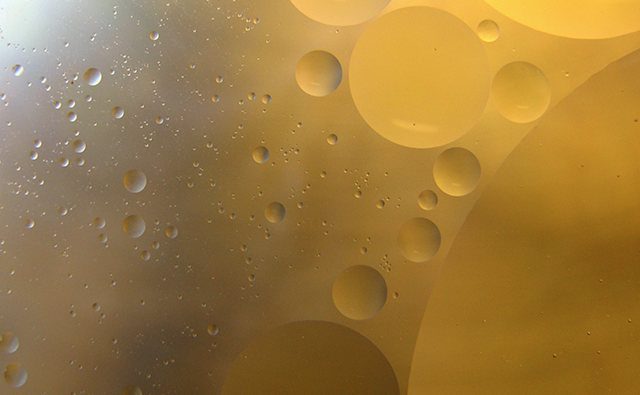Industry News, Coatings
Olive Stone Powders: A Natural, Sustainable Option for the Paint & Coatings Industry

Industry News, Coatings

The copyright of the article featured picture belongs to fdecomite, Flickr
All around the world and across industries, businesses are called to be more sustainable, green, and clean. Hence, companies are increasingly required to balance economic, social, and environmental considerations to ensure a better quality of life for current and future generations.
Amidst this push for sustainability, the paint and coatings industry may face some challenges due to the environmental and health impacts of some of the chemicals commonly used in its products. However, the market now provides natural, sustainable options that can even enhance physical and mechanical properties of coating formulations. These alternatives include bio-based binders, biodegradable texturizers, recycled content, and natural pigments.
A circular raw material that has lately gained wider attention is the olive pit, a byproduct from the olive oil mill. Olive oil manufacturing involves compressing of the whole olive, which produces a solid residue of pulp, peel, and fragmented pits. In the past, raw olive pits have mainly been used for combustion. In some countries, they are still considered waste products and not yet part of any upcycling value chain.
According to the International Olive Council,1 the global olive oil production volume for the 2021/22 crop year is estimated at 3.10 million metric tonnes, up 2.9% from the year before. Hence, there is a massive amount of olive pomace (pulp) left behind, which comes with certain disposal challenges because of its fat and polyphenolic compound content. Fortunately, new technologies have emerged to recover this waste stream and to break it down into its components.
Specialized machines are used to process the pomace in a moist state, and olive pit fragments are separated from pulp and shell through a centrifugation process. The fragments are then mechanically cleaned, dried, and screened based on their particle sizes. Through this complex treatment process, BioPowder recovers light beige granules that are free of any dust/pulp and nearly odorless. The company further processes them into top-grade micronized powders with different surface functionalization options. Marketed under the brand name Olea FP, they are fully circular additives with desirable properties for modern coating formulations.
For paints, floorings, and other coating systems, the olive stone powders present an exceptional range of opportunities thanks to the following mechanical properties:
Reduction of Gloss
One way in which the olive stone powders can enhance paint and coating formulations is by reducing their gloss. The micronized powders have proven effective as matting agents, among others in the following ways:
On the whole, the conducted studies demonstrate the effectiveness of the bio-based additive as a matting agent in various types of paint formulations, including epoxy and acrylic paints. By reducing the gloss of such coatings, the product can help create a matte finish, which is desirable in many applications such as automotive or furniture coatings. Additionally, their use as replacements of traditional matting agents like PE powder can greatly reduce the environmental impact of coatings manufacturing.
Reinforcement and Enhanced Abrasion Resistance
The high hardness of the olive stone functional powders makes them ideal for use as reinforcing agents in coatings. By adding variable doses, manufacturers can improve the coatings’ resistance to wear and tear, i.e. caused by impact and abrasion. This feature is particularly useful in applications where coatings are subjected to high levels of stress, such as in marine or industrial settings. As part of a comprehensive study, the following tests were conducted:
These results demonstrate that olive stone powder improves the abrasion resistance and hardness of formulations. Consequently, these functional fillers can help extend the lifespan of coatings, which ultimately boosts efficiency and supports less frequent use. Additionally, the powder’s feather-light properties make it an attractive option for lightweight coatings in applications where every gram counts.
Natural Particles for Texture and Surface Effects
In addition to its use in matting and reinforcement, these bio-based additives are also an excellent option for creating unique surface textures in coatings. Manufacturers looking for bio-based alternatives can consider using olive stone functional powder for the following uses:
In sum, the use of Olea FP in coatings comes with multiple advantages. As a compostable material, it constitutes an eco-friendly alternative to conventional matting particles. Its resistance and lightweight properties make it an attractive reinforcing option, while its customizable micron ranges provide versatile surface texturing opportunities. Manufacturers would ideally take advantage of these effects in combination to create attractive design coatings from renewable sources.
The need of companies to adopt sustainability throughout their value chain has doubtlessly become imperative. But what does it take to be truly eco-friendly and set new standards for responsible manufacturing practices? Specifically, what makes a coating stand out as more sustainable? The answer lies in the carbon footprint, and hence a full life-cycle assessment, of all materials used in a formulation.
Measuring the CO2 output in all stages of the manufacturing value chain has become a recognized benchmark. In this regard, BioPowder has committed to lean practices that are deeply ingrained in the circular ecosystem of olive by-products. As a consequence, olive stone particles come with an optimized carbon footprint: they are manufactured 100% mechanically, i.e. with electricity being the main required utility. The use of water is minimal, and production does not generate any waste. Most remarkably, olive trees are among the plants that bind the largest amounts of CO2. Evidence shows that roughly 1.5kg of CO2 is produced per liter of extra virgin olive oil. However, an olive orchard can absorb up to 10kg of CO2 while growing the equivalent quantity of olives.2
In conclusion, it can be said that olive stone powders are doubtlessly creating opportunities for carbon-efficient innovation in paint and coatings. The BioPowder team supports coatings manufacturers throughout all stages of R&D and production and looks forward to new project partners.
References